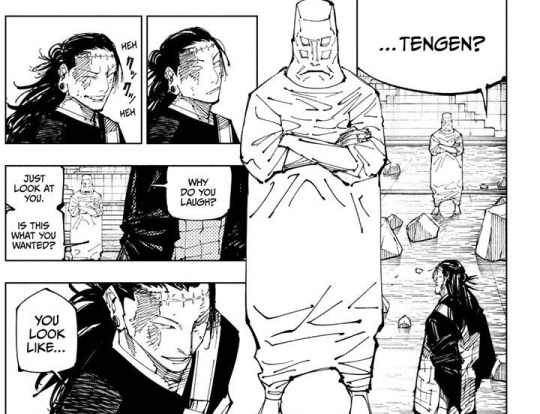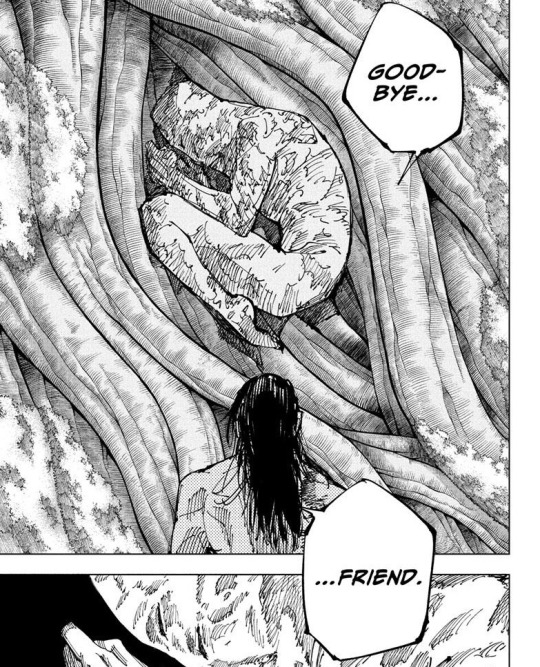Attack on Titan / Tokyo Ghoul / Jujutsu Kaisen / Chainsaw Man
Don't wanna be here? Send us removal request.
Text

This should be illegal
372 notes
·
View notes
Text
Hot men are born in December




15 notes
·
View notes
Text
He is beauty, he is grace




Fighting alongside him would be so distracting
115 notes
·
View notes
Text
To see a world in a grain of sand
And heaven in a wild flower
To hold infinity in the palm of your hand
And eternity in an hour

7/12/1989
4 notes
·
View notes
Text
Whoever at WIT worked on drawing Levi’s side profile has my respect cause LOOK AT HIM!!






Also why didn’t Mappa hire them??
1K notes
·
View notes
Text
Thinking back I come to appreciate Attack on Titan even more. Current running manga series or the ones that came out a few years ago don't give off that sense of grandiosity. That's a personal opinion. Don't get me wrong, they're all very good and cool, but it's almost all they are. None of them are such profound stories like Attack on Titan. Sure they explore some meaningfull themes and touch on philosophical or psychological concepts, but I guess when reading them I don't get that feeling of illumination like I had when reading Attack on Titan. It was like staring at the masterpiece painting in a gallery. Or observing nature in its glory. Just something illuminating that makes you think about your place in the world. When Attack on Titan ended, I think at that time I didn’t fully realize what a grand experience it was to read this work of art. Thank you Isayama!
59 notes
·
View notes
Text
Four Horsemen Devils in Chainsaw Man
Has anyone ever wondered why the Four Horsemen Devils in Chainsaw Man are female? I've read some articles and posts saying that it's because Fujimoto likes "strong female characters", but that is such a shallow explanation. Actually it's much deeper in meaning.
To start let's look at who/or what the Four Horsemen Devils are. In chapter 84 it is revealed that there are four extremely powerfull devils in the world: Death, Hunger, War and Control.

They take the form of females and call themselves "sisters". Death being the eldest and most powerfull, Famine the second-eldest and War and Control being the youngest. So far in the manga we've seen three of them: Makima/Nayuta (Control), Yoru (War) and Fami (Famine). So the question is: why female?
Death, hunger and war are essentially chaotic in nature - something that ordinary humans have no control over. Death and hunger are natural occurences. War as in conflict is also a natural trait among species. So the three devils Death, Famine, War connect to the chaotic nature of the world. Control is no exeption. If we take the definition of Control, it means to order, limit or rule something or someone. It means putting order on chaos. But if someone controls us, it then means we have no power to determine our lives. Simply put: we descend into chaos. It's a paradox.
But why is chaos represented as feminine then? Chaos is the birthplace of things, so it is often shown as feminine, because feminine is the birthplace of things. It is archetypally associated with birth and creation in the world. With all things that arise out of nature - the most chaotic force. Nature is unpredictable, untamebale in a way. But it is also life. It allows things to be born, to exist in a world.
What's interesting here is the hierarchy of the Four Horsemen Devils in Chainsaw Man. Why is Death the oldest? Why are War and Control the youngest? They appear in the manga in the order of seniority. First the youngest Makima as the Control Devil was introduced in the plot. Then the War Devil in the form of Yoru/Asa Mitaka. Later Famine and we have yet to see Death, the oldest of the four. Well in my understanding of things Control is the youngest because as a concept it is the youngest one. Let's start with Death. The first thing that happens to all living things is birth which automatically means death. It's a natural opposite. The yin and yang. Later to exist we need to feed ourselves. So hunger as a fear comes second. Now that we're fed in order to survive we often must fight for it. War or conflict as a fear is next. Once we win in this battle of survival we so desperetaly want to control it. Control all the aspects of our life. The fear of losing that control or being under control by someone/something is last.
The Four Horsemen Devils in Chainsaw Man represent the cycle of existance and our constant fear of it.
24 notes
·
View notes
Text

Levi & Gojo
35 notes
·
View notes
Text


am i the only person turned on by this
69 notes
·
View notes
Text
Levi Ackerman’s slender hands appreciation post







259 notes
·
View notes
Text
Chainsaw Man is to Jujutsu Kaisen what Tokyo Ghoul was to Attack on Titan.
20 notes
·
View notes
Text
men over boys
Wife guy blunt rotation









#snk#jjk#jujutsu kaisen#haikyuu#mha#levi ackerman#gojo satoru#eren jeager#toji fushiguro#mha hawks#aizawa shouta#choso kamo#oikawa tooru
2K notes
·
View notes
Text
JJK ending pretty much


31 notes
·
View notes
Text

Levi & Gojo
47 notes
·
View notes
Text

I really hate to think that the room Megumi woke up in, is Gojo's bedroom.
Cause the students rooms look totally different and this is a pretty fancy bedroom, so I assume it must've belonged to "someone" really important in Tokyo High. Or just be a spare idk.
Somehow the shoji pattern on the right looks similar to the one here, behind Megumi.

This is just sad.
#gege has no chill#gege really hates Gojo#he even took this man's bedroom#or i'm just seeing things#gege when i catch you gege#jujutsu kaisen#jjk#gojo satoru#jjk gojo#megumi fushiguro#jjk megumi
30 notes
·
View notes
Text

The irony of Gojo’s character. Granted arguably the most powerful cursed technique that made him closest to God, yet he couldn’t protect that which mattered to him.
He couldn’t stop Geto from descending into darkness.
He couldn’t keep his students out of harms way.
He couldn’t protect his students youth and innocence.
He couldn’t save all the people in Shibuya.
He couldn’t ensure his own freedom.
Gojo is granted everything… yet can’t do anything. Not on his own at least.
22 notes
·
View notes
Text
I figure Kenjaku and Tengen’s backstory was pretty similar to Gojo and Geto’s. We know from manga that Kenjaku is well aquainted with Tengen. We see this in chapter 208 when Kenjaku is approached by Tengen.

After his fight with Yuki, Kenjaku goes to the Tomb of the Star. When he sees Tengen, he calls them a friend.

Both Kenjaku and Tengen are barrier users. Perhaps their role was to ensure the safety of humanity and protect jujutsu sorcerers. But at one point, some thousand or more years ago, they fell apart. Tengen was advocating buddhism ideals that are the core of jujutsu society now, while Kenjaku disagreed with the concept of exorcising curses and protecting humans from them, forcing the evolution of humankind by merging with Tengen. Their philosophies clashed and they became enemies, much like Gojo and Geto did.
Too bad this wasn’t elaborated more in the manga by Gege. It would’ve deepen the meaning of the story and add a nice parallel to it.
59 notes
·
View notes